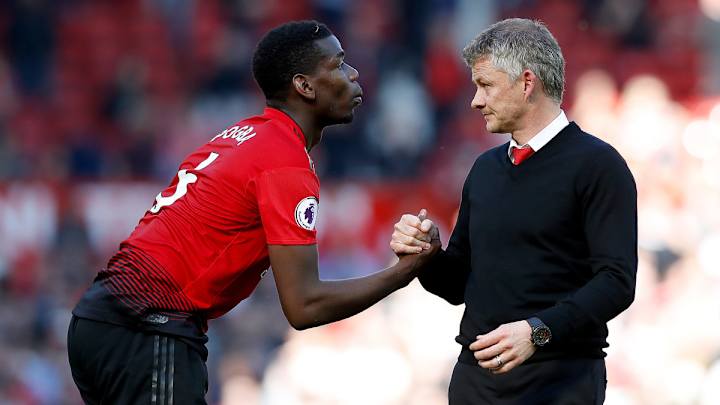Questions Abound Ahead of Solskjaer's Second Season at Man United

There has been something very strange about the media coverage of Manchester United’s pre-season tour of Australia, Singapore and China. One aspect has dominated beyond all else. It’s there in the official photographs and it’s there in the write-ups of interviews. It’s all pervasive. Everywhere you look there is one thing: sweat.
Perhaps it’s all just coincidence. It probably is very hot and, in some areas, humid. But there feels something slightly knowing about all this. For United, sweat is the theme of the summer. “We are here to build them up, that is where we are,” said the manager Ole Gunnar Solskjaer. “When the league starts, everyone should be as fit as they possibly could be from the starting point.
“When I came in, I was criticized for playing the same team too often and for being too hard on them. That we asked them to run more and we ended up with a few injuries, so maybe I could have, should have rotated. Pre-season is about laying good foundations, so they won’t have to have that rest.”
This, of course, is a classic strategy. There’s barely a new manager in the history of the game who hasn’t arrived with some grumbles about the state of what he inherited, that the previous manager hadn’t left his players fit enough. But this time there is some corroboratory evidence: perhaps this time it’s true. When Solskjaer took over United in December, no side had run less in the Premier League last season than United.
That’s not to say United was necessarily unfit; it’s more evidence that Jose Mourinho’s style of football did not demand extreme fitness. Solskjaer tried to institute a pressing style and the result, after an initial surge of good results—14 wins in 17 games, culminating in the away goals victory over Paris Saint-Germain—was a collapse towards the end of the season exacerbated by a string of injuries: United lost eight of its final 12 fixtures.
But even if fitness was a major issue, nobody can seriously believe it was the only issue. The squad remains in shambles, a patchwork of the ideas of differing managers, cobbled together with seemingly very little thought for an overall philosophy. United’s first two signings this summer, Dan James and Aaron Wan-Bissaka, suggest a welcome shift towards trying to identify young talent on the rise but it will take more than that to persuade skeptics that there is suddenly a coherent strategy at Old Trafford.
That’s the problem when you have a history like the United CEO Ed Woodward has and when you have a board that, during the six-year drought since Alex Ferguson retired, has shown very little evidence of footballing expertise. Is this a new strategy, or is Woodward, as he has since replaced David Gill in 2013, simply blowing with the wind? Even his appointment of Solskjaer on a permanent basis seemed motivated by pressure after the impressive start. There was no need to do it: he could have waited till the end of the season and gathered two months more evidence of Solskjaer’s capabilities.
As it is, United has ended up with a manager of unproven worth—Molde went well for him; Cardiff badly—looking to enact the greatest overhaul of the squad in more than 30 years. There were some signs of promise, most notably the tactical switches in the game in Paris, but by the end of the season the endless evocations of life under Ferguson had become auto-parodic. What had begun as a useful counter to the toxicity of the Mourinho era quickly became hackneyed.
Whether Solskjaer has any other tricks remains to be seen. Sweat is a good place to start, particularly given the widespread perception that United had become soft, that players had lost sight of the need for commitment, but it can only ever be part of a wider strategy. Other questions remain unanswered. It seems likely that Harry Maguire will arrive to add fresh blood to a central defence that has rarely convinced of late, but doubts remain about both the future of Paul Pogba and Romelu Lukaku.
Lukaku’s move to Inter had seemed almost certain to go through, but haggling over a fee has been going on for a long time now. Pogba, who has rarely seemed settled in his second spell at United, may yet end up at Real Madrid or Paris Saint-Germain but it feels late in the window for negotiations to begin. And that means United may be left with two expensive assets, their two most expensive signings, neither of whom really wants to be there.
It’s all a mess. Solskjaer is a likable figure but expecting him somehow to sort all this out seems extremely optimistic.
